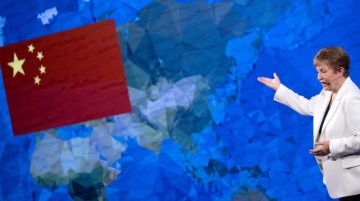Ajay Banga, U.S. President Joe Biden’s nominee to head the World Bank, is on a ‘listening tour’ of Africa to drum up support for his nomination. Banga kicked off his visit to the continent in Ivory Coast and Kenya.
As a veteran of the private sector (he was an executive at Citigroup before heading Mastercard), Banga is an unlikely fit for a job usually occupied by development finance experts. While he is officially a nominee and is campaigning for support, the fact that he was appointed by Biden basically makes him a shoo-in.











